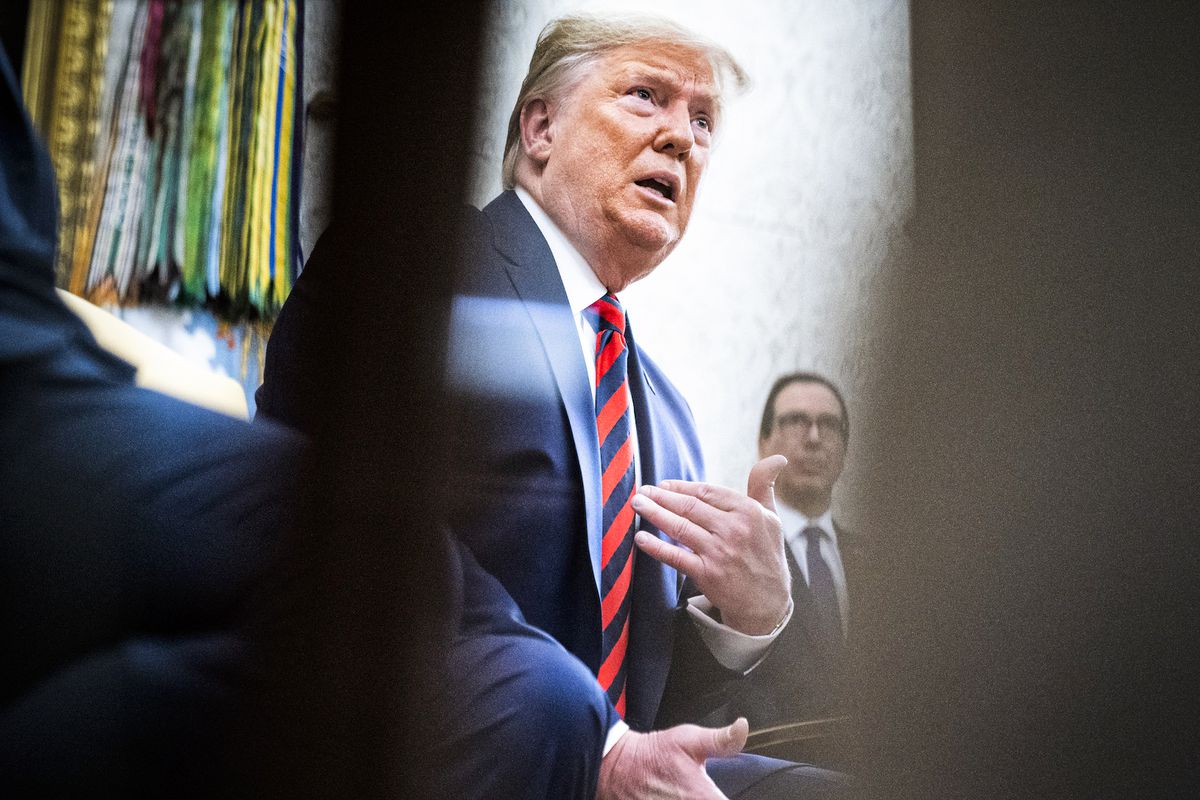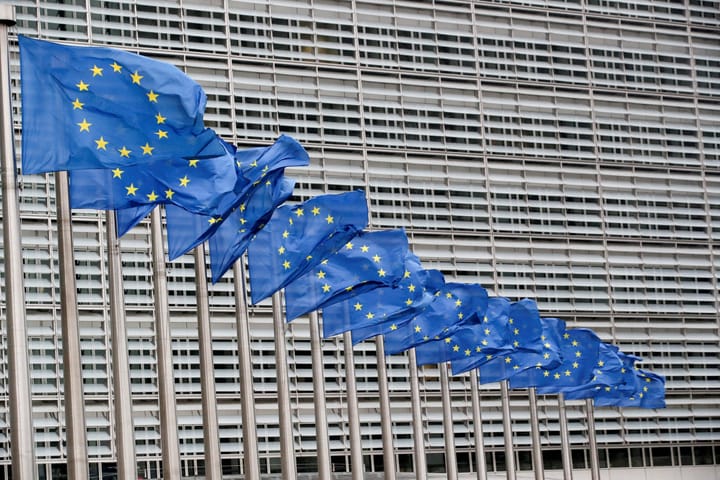Trump impeachment probe – Basic facts and timelines

A few minutes every morning is all you need.
Stay up to date on the world's Headlines and Human Stories. It's fun, it's factual, it's fluff-free.
Within the span of two weeks in September, a seemingly minor story of a conflict between Congress and US Intelligence officials mushroomed into a scandal that now dominates headlines worldwide. Amidst accusations that Republican President Donald Trump pressured Ukraine to take actions that would influence the 2020 United States national election, the Democrat-controlled House of Representatives has launched a formal impeachment inquiry.
Several prominent Republicans who intend to challenge Trump for the 2020 Republican presidential nomination have openly called for Congress to impeach Trump, with one of them describing the president’s actions as “Treason, pure and simple.”
Meanwhile, Trump and his allies assert that it is actually Democratic presidential candidate and former Vice President Joe Biden who exercised inappropriate influence in Ukraine.
How the Scandal Arose – The Whistleblower Complaint
At the center of the controversy is a whistleblower report filed by an anonymous member of the US Intelligence community, detailing concerns about Trump’s behavior. In mid-September, both the Washington Post and the Wall Street Journal reported that the whistleblower’s concerns centered on a “troubling promise” exchanged between Trump and Ukrainian President Volodymyr Zelensky. The Trump Administration eventually confirmed that a phone call between Trump and Zelensky triggered the report.
Trump has acknowledged that during the July 25, 2019 phone call, he discussed Biden with Zelensky, and advocated for the Ukrainian government to investigate Biden family activities in Ukraine.
He said that such an investigation would just be a necessary component of Zelensky’s efforts to combat corruption, and that it has no connection to Trump’s campaign for re-election in 2020.
Biden is also one of Trump’s major political rivals in the upcoming US election.
In the wake of these revelations, Democratic Speaker of the House Nancy Pelosi has stated that she has now authorized an “official impeachment inquiry”:
Prior to the revelations about Trump’s contact with Zelensky, Pelosi had consistently refused to sanction the impeachment process called for by many of her fellow Democrats.
Less than 24 hours after Pelosi’s press conference, the White House released a “rough transcript” of the July 25 conversation. A disclaimer accompanying the document noted that it was not necessarily a word-for-word transcription of the complete phone conversation. (Rough transcripts are sometimes created from the notes taken by those who listened in on a White House phone call.)
While the transcript confirms the general outlines of the allegations about Trump’s activities, it leaves open the question of whether the president broke the law.
On the same day, select members of Congress received the actual whistleblower complaint. One day later, the non-classified sections of that complaint were released to the public.
The Basic Facts and Timeline
As compiled by CNN, the Washington Post and The Millennial Source reporters, here is the timeline of the current Trump-Ukraine scandal:
- July 18, 2019. The US Office of Management and Budget tells Trump Administration officials to suspend $250 million in military and security aid to Ukraine, funds that had been appropriated by Congress. This directive was evidently based on an order that came directly from Trump earlier in the month.
- July 25, 2019. Just one day after Robert Mueller testified before Congress about Russian interference in the 2016 US election and possible obstruction of justice by Trump, the phone call that prompted the whistleblower’s complaint occurs between Trump and Zelensky. During the call, Trump responds to Zelensky’s mention of military aid by asking Ukraine for “a favor”.
- July 28, 2019. Trump announces the retirement of DNI Dan Coats.
- August 12, 2019. The whistleblower complaint is filed with intelligence community IG Michael Atkinson, who was appointed to the position by Trump in 2018.
- August 26, 2019. Consistent with the Intelligence Community Whistleblower Law, Atkinson deems the report credible and forwards it to Joseph Maguire, the new DNI that Trump had appointed on August 16.
- September 2, 2019. Maguire does not forward the report to congressional intelligence committees within seven days, seemingly in violation of the law.
- September 9, 2019. Atkinson notifies Adam Schiff, Chair of the House of Representatives Intelligence Committee of an “urgent concern” that the DNI refused to transmit to Congress. Reports begin to surface that the concern relates to conversations between Trump and a foreign leader. House committees announce investigations into whether Trump pressured Ukraine to help him gain re-election as president
- September 11, 2019. Trump authorizes the release of the $250 million in suspended military and security aid to Ukraine; some reports suggest that he actually increased the dollar amount of the aid.
- September 24, 2019. Pelosi sanctions a House of Representatives impeachment inquiry, to be conducted by six committees already investigating the president. Schiff indicates that he believes the whistleblower will be willing to testify before Schiff’s committee.
- September 25, 2019. Trump Administration releases a rough transcript of the July 25 Trump-Zelensky phone call, with a disclaimer that the transcript is not a verbatim record of the call. Members of Congress with appropriate security clearances also receive the whistleblower complaint that launched the scandal.
- September 26, 2019. The whistleblower report, with classified sections redacted, is released to the public. Maguire testifies before the House Intelligence Committee. Trump privately suggests that those who provided information to the whistleblower should be treated as spies.
Background: Whistleblower Law for Intelligence Agencies
The 1998 Intelligence Community Whistleblower Protection Act details the procedures that US Intelligence agency members must follow in order to report potentially unlawful or dangerous activity within or relevant to the intelligence community. In brief, any agent with an “urgent concern” about potential wrongdoing in the realm of intelligence or national security must bring that concern directly to the Inspector General (IG) of the CIA. The IG then has 14 days to determine whether the complaint is credible.
Upon arriving at the conclusion that a whistleblower report is credible, the IG must transmit the report to the Director of National Intelligence (DNI). In the language of the statute, upon receiving the report from the IG, the DNI “shall, within 7 calendar days of such receipt, forward such transmittal to the intelligence committees [of the Senate and House of Representatives], together with any comments the Director considers appropriate.”
As the Washington Post has noted, the law does not appear to give the DNI any choice about sharing a credible whistleblower complaint with congressional committees. The statute dictates that the DNI shall transmit the report to the committees within seven days. Maguire did not abide by this timeline, as he acknowledged in his testimony before the House Intelligence Committee on September 26.
At the hearing, Maguire stated that because the president is not part of the intelligence community proper, it is “unprecedented” for a member of that community to file a whistleblower complaint about him. Furthermore, the inclusion of the president’s words in such a report raises legal complications, because conversations between the US President and foreign leaders or other officials are protected by Executive Privilege. Based on these considerations, Maguire concluded that it would not be reasonable to comply with the seven-day transmission deadline.
According to his testimony, Maguire consulted with the US Department of Justice and the White House Office of Legal Counsel in his attempt to resolve the various legal dilemmas presented by the complaint. The Department of Justice in turn concluded based on the whistleblower’s complaint that no laws had been broken by the president.
This determination by the Department of Justice played a critical in Maguire’s decision making. In the 1974 case of United States v. Nixon, the US Supreme Court ruled unanimously that Executive Privilege cannot be asserted to protect or conceal criminal activity.
It remains unclear how the Department of Justice arrived at its conclusion, however. US Federal Election Commission (FEC) Chair Ellen Weintraub made a public statement on June 13, 2019 that it is illegal for any US political candidate to solicit or receive aid from a foreign entity:
In his testimony, Maguire insisted that given sufficient time to resolve the Executive Privilege issue, he would have submitted the report to Congress as required. Yet it is worth noting that he was effectively given an extra week beyond the seven days allowed in the statute. Those seven days expired on September 2, and IG Atkinson did not notify Schiff of Maguire’s failure to forward the complaint until September 9.
As part of its ongoing investigation, the House Intelligence Committee is now seeking to speak directly with the whistleblower. Because the whistleblower’s anonymity is guaranteed under the law, any such hearing would occur in closed-door session with no journalists present.
[article_ad]




Comments ()